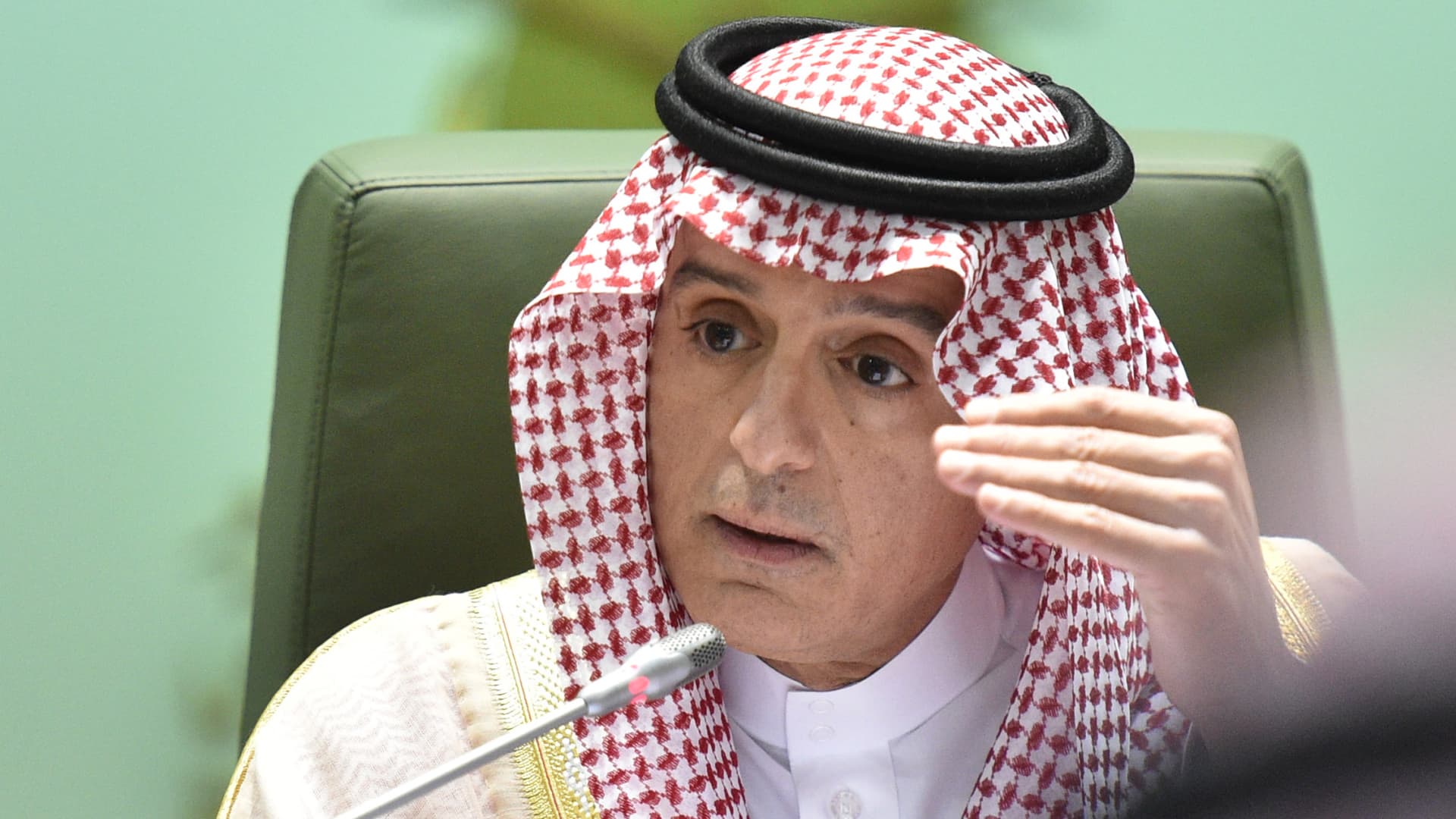
Saudi Arabia will continue to strengthen its relationships with both the U.S. and China, one of the kingdom’s top diplomats told CNBC as President Joe Biden paid a closely-watched official visit to the country.
“We build bridges with people; we don’t see one as exclusive of the other,” Saudi Minister of State for Foreign Affairs Adel al-Jubeir told CNBC’s Hadley Gamble in Jeddah.
“We want to be able to deal with everybody and we want to be able to engage with everybody. This is what we have done,” said al-Jubeir, who was recently appointed as envoy for climate affairs.
“China is our largest trading partner. It’s a huge market for energy and a huge market in the future. And China is a big investor in Saudi Arabia — the United States is of course, our number one partner when it comes to security and political coordination, as well as investments and trade between the two countries.”
The conversation took place against a backdrop of Biden’s much publicized — and criticized — visit to the Middle East, his first since taking office. The president was on a mission to restore ties with Saudi Arabia, a strategic ally of some 80 years, and a country he has spent years excoriating for its human rights abuses.
In a blatant turnaround spurred by painfully high gas prices for American consumers, a food and energy crisis triggered by Russia’s war in Ukraine, and a desire to bring the Saudis and Israel closer to one another, Biden this week praised Washington’s long-held relationship with the kingdom and went to lengths to explain why it was vital for U.S. interests.
Those interests, the president wrote in a Washington Post op-ed last week, include regional stability and security, counterterrorism, a united front in dealing with Iran, a ceasefire in Yemen, and oil market stabilization. Saudi Arabia is also Washington’s top weapons buyer.
Hedging their bets
Another ongoing aim of the administration is to convince Gulf countries, which rely on the U.S. for security and military equipment, to help isolate Russia and China.
Following years of inconsistent commitment from Washington, starting with the Obama administration’s declared desire to “pivot” away from the Middle East and to Asia, governments in the region have expanded ties with the two U.S. adversaries — particularly China, which is Saudi Arabia’s top trading partner and among the top buyers of its oil.
Many regional officials and analysts alike argue that these states can’t be blamed for trying to hedge their bets, especially when China is such a lucrative trading partner and investor, and when Saudi Arabia’s hard-won relationship with fellow crude exporter Russia allows it greater control over oil markets.
One such example is specific types of arms that the U.S. isn’t yet selling to Arab allies: lethal drones.
Saudi Arabia and the United Arab Emirates — despite being closely tied to Washington, hosting U.S. military bases and requiring American training to use U.S.-interoperable weapons systems — have been buying lethal drones from China because they can’t get them from their American allies due to strict export controls.
In a sort of Catch-22, Washington is now withholding certain arms from the UAE because of concerns over its relationship with China.
Read more
Still, the sheer scale and depth of the political, military and economic ties between Washington and Riyadh mean that both sides have a clear interest in upholding the nearly century-old relationship.
“With the United States, we share a history and we share contemporary issues … the challenges in our region, whether it’s Iran, Yemen, Iraq, supporting Iraq, Syria, Lebanon, peace process, Horn of Africa, G5 countries of the Sahel stabilizing Libya, Afghanistan… our relationship with the U.S. in dealing with these issues is critical,” al-Jubeir said.
It’s important “for the mutual benefit of the two countries, and so that relationship is very solid and very strong,” the minister added. “And we believe that the last 80 yearsit has provided tremendous benefits to both countries, and we look forward to building for the next 80 years.”




